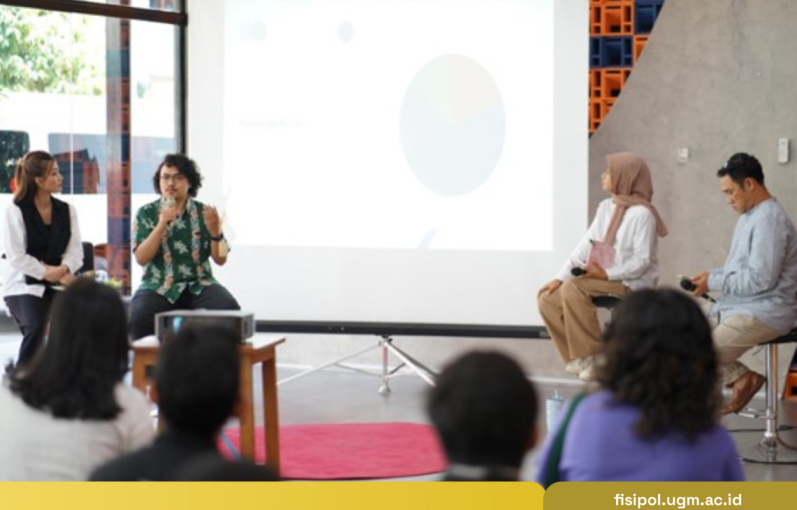
Yogyakarta, September 6th, 2024–Looking back at the demonstration demanding the revision of the Pilkada Law on August 22, 2024, social media is considered a platform that plays a significant role in channeling the aspirations of democratic emergencies by the public.
To explore this issue further, CfDS, in collaboration with the Department of Politics and Government and the Faculty of Social and Political Sciences UGM, held a public discussion entitled “Democracy Emergency: When the Limits of Public Ethics are Violated”.
The event, held at BRIWork Fisipol UGM, was opened by Perdana Karim, a researcher from CfDS UGM, on how personal issues can be an entry point for activists to get involved in the Democracy Emergency.
Research conducted by the Center for Digital Society shows that public attention to personal issues, such as the luxurious lifestyle of public officials, can attract digital activism on social media. This is because the behavior of public figures is considered to violate the norms or morals of society in the form of injustice.
Perdana Karim states, “When personal issues are in the spotlight, norms or morals are violated by public figures and hurt the feelings of the public. That’s when people become interested and participate massively in institutional issues.”
Responding to the research results, Dian Fatmawati, a lecturer at PSdK UGM, argued that the form of public demonstrations on this issue is an accumulation of unrest and anxiety towards government institutions. Various events considered to injure people’s rights, such as issues of social inequality, economic inequality, and legal injustice, have become cynicism that triggers more significant mass mobilization to oversee the issue of a democratic emergency (Darurat Demokrasi).
“This growing cynicism reflects the people’s deep disappointment that eventually forms collective public anger,” said Dian.
In addition, according to Pratiwi Yudha from BEM KM UGM, students play an essential role as catalysts for mobilizing a larger mass to guard this issue. As a generation close to social media and with excellent access to information, students can be the driving force in spreading political awareness and creating an inclusive discussion space.
“Students need to be actively involved in fighting for democracy and public ethics because this is related to systematic problems that cannot be ignored for the future of democracy itself,” said Pratiwi.
The public discussion organized by CfDS, DPP, and Fisipol UGM is expected to be a forum to encourage critical dialogue on government performance in the current digital era. There are still many risks from the swift flow of information on social media, so through the various perspectives presented, this discussion is expected to lead to a more comprehensive understanding of the challenges and opportunities faced by democracy in Indonesia.
